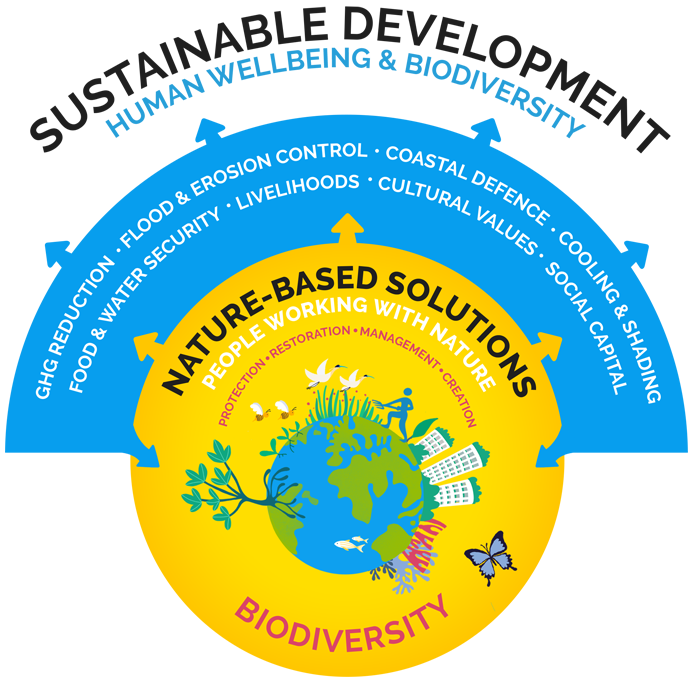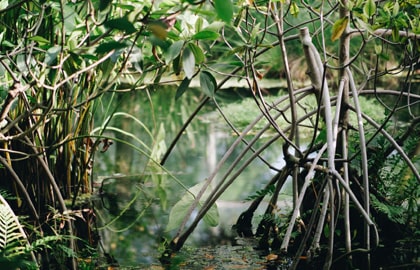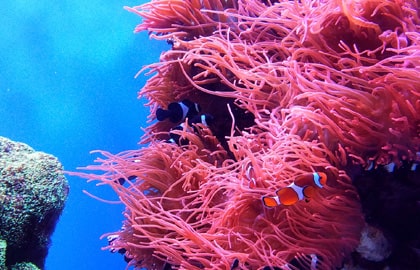What is the Nature-based Solutions Initiative
Who are we?
Founded in 2017, the Nature-based Solutions Initiative is an international and interdisciplinary team of natural and social scientists, mathematicians and economists seeking to apply impactful research to shape policy and practice on nature-based solutions through research, teaching and engagement with policymakers and practitioners.
We are based in the Departments of Biology and Geography (Smith School of Environment and Enterprise), collaborating with engineers, governance and finance experts from across the University of Oxford and beyond, and working closely with international and local NGOs from the conservation and development sectors.
What are Nature-based Solutions?
 What are Nature-based Solutions?
What are Nature-based Solutions?
Nature-based Solutions involve working with nature, as part of nature, to address societal challenges, supporting human well-being and biodiversity locally. They include the protection, restoration or management of natural and semi-natural ecosystems; the sustainable management of aquatic systems and working lands; and integration of nature in and around our cities. They are actions that are underpinned by biodiversity and designed and implemented in a way that respects the rights, values and knowledges of local communities and Indigenous Peoples.
Want to learn more?
If you would like to learn more about the role of NbS in addressing societal challenges, we recommend you:
- Read our publications
- Attend our course
- Watch our animation
- Come to our conference
- Explore our global map of good practice nature-based solutions
- Use our Knowledge Hub for Scaling-up Nature-based Solutions in the UK (coming soon)
We also strongly encourage you read about the IUCN Global Standard for Nature-based Solutions
NbS Guidelines
Make sure you read these evidence-based guidelines
around what constitutes successful, sustainable NbS.
Examples of Nature-based Solutions

Restoring and protecting forests and wetlands in catchments
Protecting or restoring forests and wetlands (e.g. peatlands) in catchments can secure and regulate water supplies, support production of forest products, and protect communities and infrastructure from floods, soil erosion and landslides.

Bringing nature into cities
Creating green roofs and walls and planting trees in cities can moderate the impacts of heatwaves, capture storm water and abate pollution. Such measures also have positive outcomes for mental and physical health.

Coastal habitat restoration
Protecting or restoring coastal ecosystems (mangroves, reefs and salt marshes) protects communities and infrastructure from storm surges and erosion. Coastal habitats, especially mangroves, are particularly good at sequestering carbon, so restoration also contributes to climate change mitigation.

